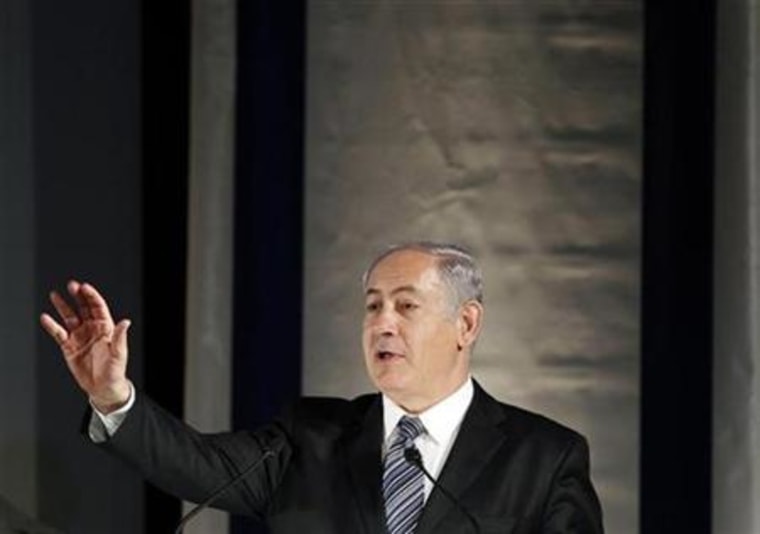Israeli Prime Minister Benjamin Netanyahu began a U.S. visit on Sunday to meet with Vice President Joe Biden and Secretary of State Hillary Clinton and discuss ways to revive Israeli-Palestinian peace talks.
"It is our fervent desire that the current impasse can be overcome and we see an expeditious return to direct talks with the Palestinians," Netanyahu spokesman Mark Regev said on board the prime minister's flight from Tel Aviv to New Orleans.
Netanyahu meets Biden later in the day before the vice president speaks to an American Jewish conference. Netanyahu addresses the forum on Monday before a four-day visit to New York.
During the trip, he will not see President Barack Obama, who is on a visit to Asia. But the U.S. visit will give Netanyahu an opportunity to gauge the impact of last week's Republican rout of Obama's Democrats in the midterm congressional elections.
Netanyahu was scheduled to hold talks in New York with U.N. Secretary General Ban Ki-moon on Monday and Clinton on Thursday, before flying home.
U.S.-brokered negotiations that began in Washington on September 2 are in limbo over Israeli construction on occupied land Palestinians want for a state. Clinton said on Thursday she was working nonstop to break the deadlock.
Netanyahu has rebuffed U.S. and international calls to reimpose a freeze on building in Jewish settlements in the West Bank. A 10-month moratorium on housing starts in the enclaves expired some three weeks after the talks got under way.
Israeli political commentators have said the strengthening of Israel's traditional Republican allies in Congress could constrain Obama's ability to pressure Netanyahu to bend on the settlement issue.
A top Palestinian official said on Thursday the Palestinians would give the United States several more weeks to try to relaunch direct peace talks with Israel.
But the official, peace negotiator Saeb Erekat, said the Palestinians would not buckle on their key demand for a halt to Israeli settlement activity.
Diplomats have said Washington has offered Israel a package of incentives, including ideas on security, to persuade Netanyahu to resume the partial freeze for two months.
Much could depend on whether the United States opts to sweeten incentives to Israel to agree to halt building again, Israeli political sources have said.
The proposals included U.S. backing for Netanyahu's demand for an Israeli military presence along the Jordan river, the likely eastern border of a future Palestinian state.
But Israeli leaders balked at what the political sources said was the package's vague timeframe for the troop deployment, which Palestinians oppose.
Israeli officials, commenting on Netanyahu's current U.S. visit, said that with diplomatic moves with the United States at a sensitive stage over the settlement issue, he was unlikely to announce any dramatic steps during the trip.
Palestinian officials have accused Netanyahu of destroying prospects for peace through his settlement policy. Netanyahu says the issue of settlements that Israel built on territory captured in a 1967 war should be resolved in negotiations and not serve as a condition for talks.
